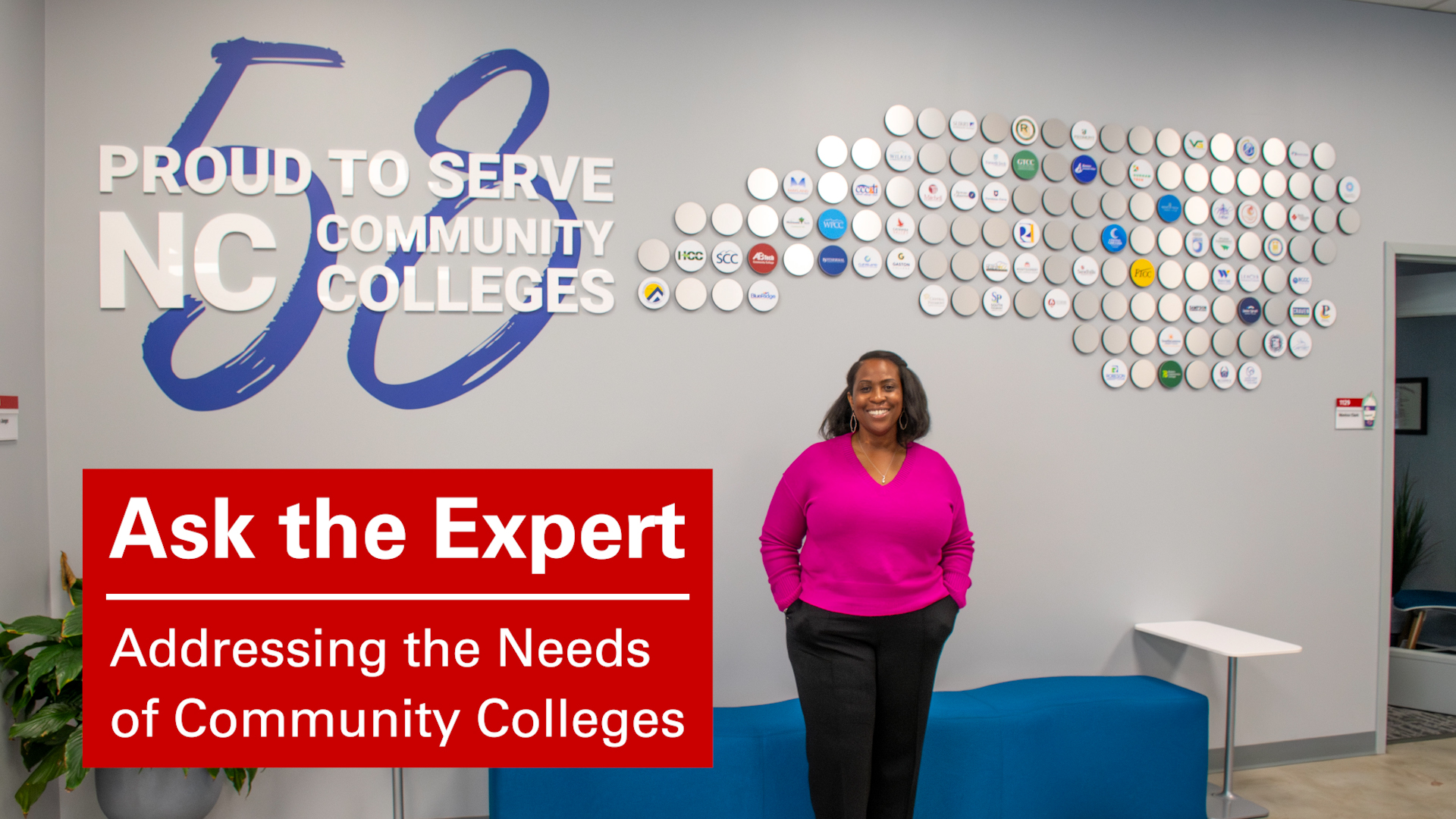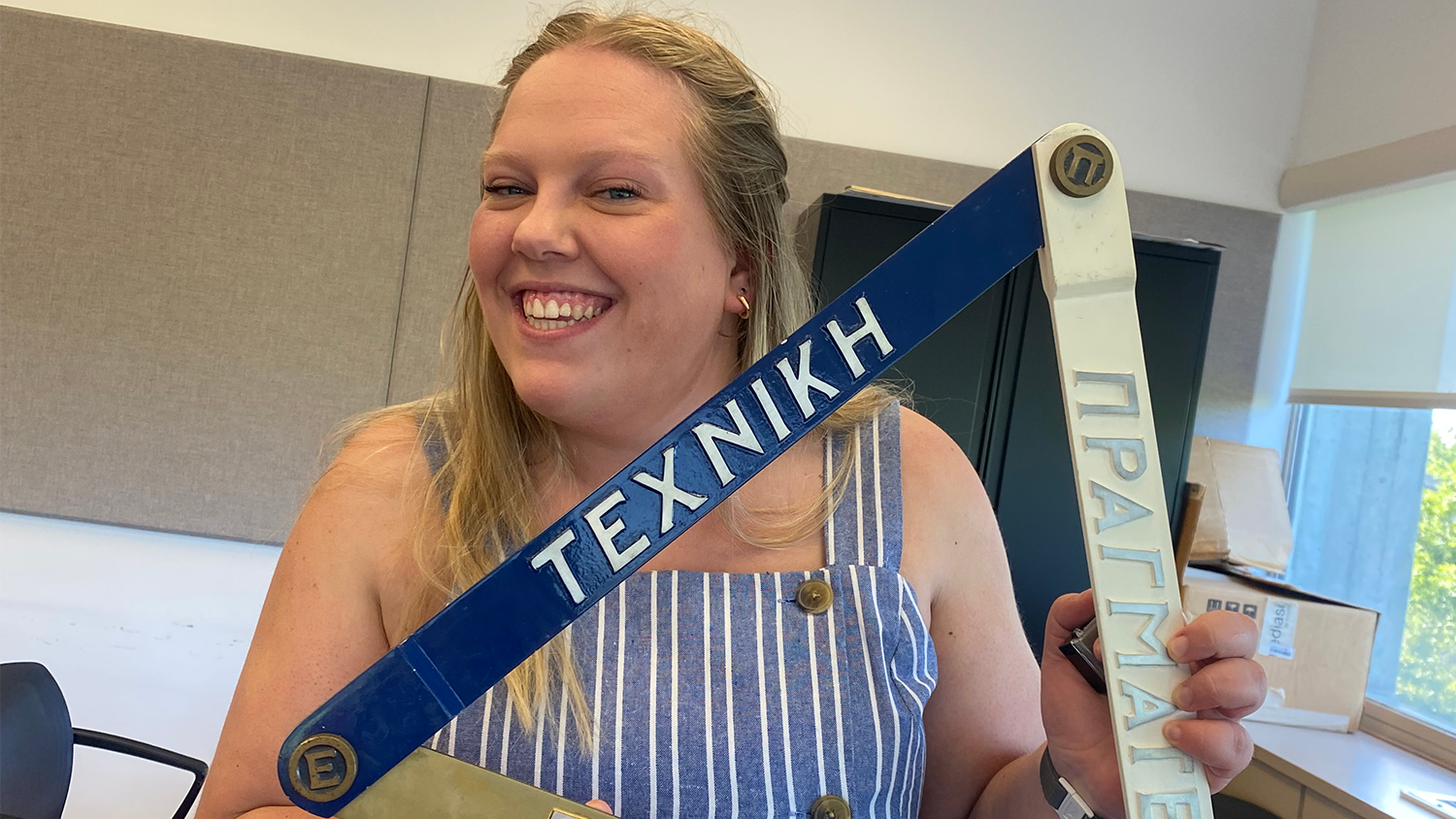How Can Teaching and Learning Hubs Improve Community College Outcomes? ‘There is No Other Singular Program in the State That Has This Type of Impact,’ Says Program Director Monique Colclough
Community colleges offer a wealth of benefits to students, including affordability, opportunities to learn at their own pace and a route to earning a bachelor’s degree. However, for students to succeed at community colleges, the institutions need support, such as access to evidence-based strategies and community partnerships, says Monique Colclough.
Colclough, a program director at the Belk Center for Community College Leadership and Research, has spent the past five years examining the supports these community colleges need and working with researchers at the Belk Center, along with partners from Achieving the Dream and the NC Student Success Center, to develop a solution: the Teaching and Learning Hubs.
Begun in response to Achieving the Dream CEO Karen Stout’s 2018 Dallas Herring Lecture, which called on community colleges to develop a culture of teaching and learning excellence, the Teaching and Learning Hubs stemmed from a series of case studies into how professional development was happening across the North Carolina Community College System which ultimately informed a successful grant to fund their creation.
The four hubs – centered around the eastern, western, central and Piedmont regions of North Carolina – serve all 58 of the state’s community colleges, complementing each individual institution’s teaching and learning efforts to support professional development activities for full- and part-time faculty members.
“A distinguishing feature of the Teaching and Learning Hubs is our dual focus on providing professional learning programs to support the growth and development of individual educators and ongoing capacity building to strengthen how each participating college designs and facilitates its professional learning programs,” Colclough said.
How Do the Hubs Help Community College Faculty Improve Their Teaching?
The more than 2,100 faculty members who have engaged with the Teaching and Learning Hubs since they began in 2021 have had the opportunity to not only engage with experts in the field, but to work alongside peers from other institutions with whom they would not typically have an opportunity to interact.
When attending hub sessions, the faculty members have the opportunity to share ideas and best practices while engaging with coursework that has focused on topics that include universal design for learning, alternative grading practices and using artificial intelligence (AI) in the classroom.
Part of the recipe for success in these sessions, Colclough said, is the partnerships the Belk Center has built with each individual community college, as well as with outside organizations like Achieving the Dream. These partnerships, she said, allow the Belk Center to offer specific support based on each institution’s needs.
“Partnerships are so important because they allow the Belk Center to execute targeted support to community colleges by convening leaders, creating tools and catalyzing social and economic mobility for learners, thereby building stronger, more resilient communities,” she said.
Two-thirds of North Carolina Community College System faculty who have engaged with the hubs have reported making changes in their classroom. More than 60% of participants said they made changes to encourage more active learning while nearly 50% of participants reported making changes related to inclusive teaching practices, transparency of their course structure and providing improved feedback to students. Other reported changes included alterations to syllabi, engaging in collaborative learning strategies and making stronger connections with students.
What Impact Do the Teaching and Learning Hubs Have on Students?
Since the hubs began, more than 167,000 students in the North Carolina Community College System have interacted with and been impacted by a hub-trained faculty member.
A recent data report examining the impact of the hubs predicted a nearly 7% increase in the likelihood of persistence – through either retention, completion or transfer to a four-year institution – for each student who takes an additional course taught by a hub-trained faculty member. Additionally, the study predicted that if all students in the North Carolina Community College System enrolled in just one extra course taught by hub-trained faculty, an additional 4,154 students would be retained, successfully transfer or receive a credential each semester.
“There is no other singular program in the state that has this type of impact across the great 58
community colleges,” Colclough said. “We’re advancing capacity building within and across disciplines, creating peer-driven spaces for community practice and building community across such a large community college system.”
The impact the hubs have had on teaching and learning has gained national attention, Colclough said, with other community colleges across the United States looking to replicate the work at their own institutions.
“Over the last year, we’ve been contacted by colleagues from other states who are interested in the hubs’ design and student success metrics,” she said. “That’s how we scale this work to serve more community colleges, instructors and students. Sharing this work and its outcomes is important, so that other colleges or state systems can replicate it.”
- Categories:



